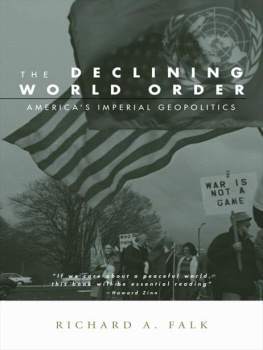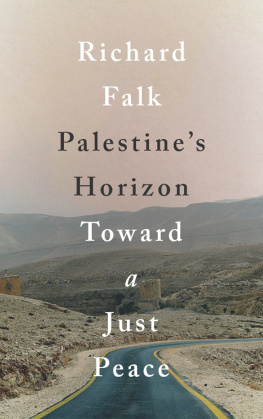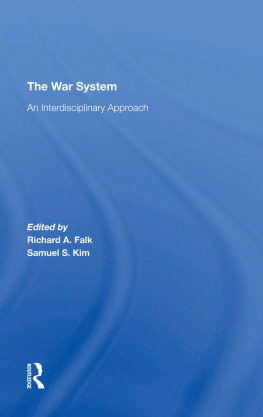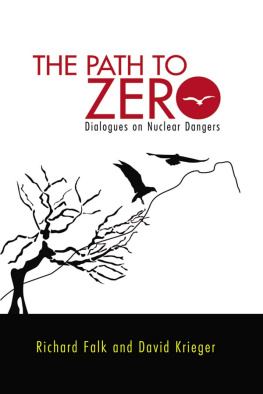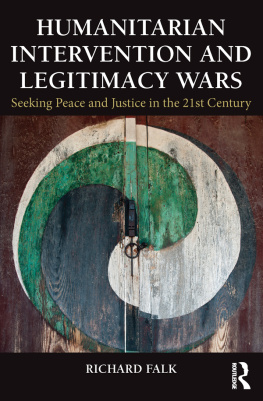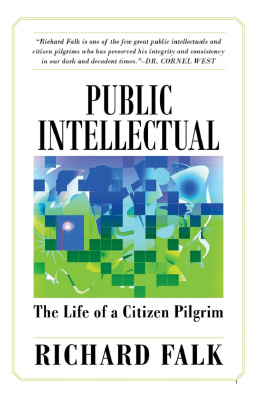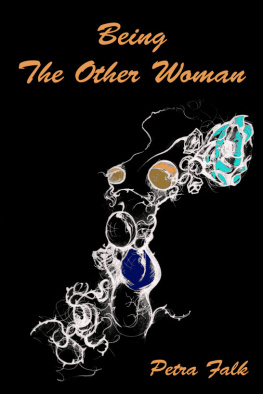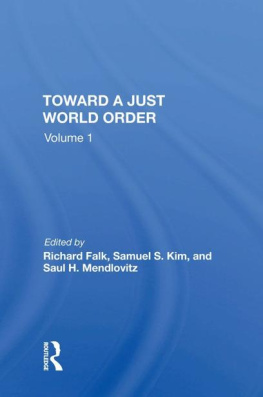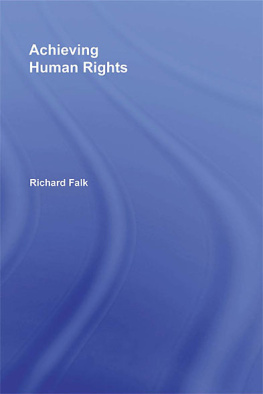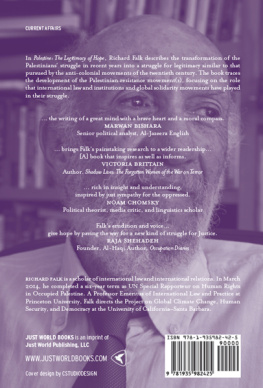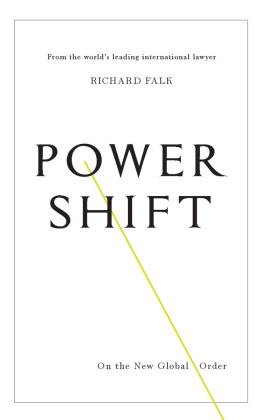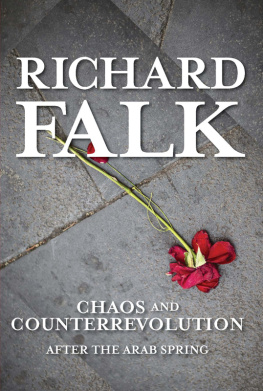Richard A. Falk - The Declining World Order
Here you can read online Richard A. Falk - The Declining World Order full text of the book (entire story) in english for free. Download pdf and epub, get meaning, cover and reviews about this ebook. year: 2013, publisher: Taylor and Francis, genre: Politics. Description of the work, (preface) as well as reviews are available. Best literature library LitArk.com created for fans of good reading and offers a wide selection of genres:
Romance novel
Science fiction
Adventure
Detective
Science
History
Home and family
Prose
Art
Politics
Computer
Non-fiction
Religion
Business
Children
Humor
Choose a favorite category and find really read worthwhile books. Enjoy immersion in the world of imagination, feel the emotions of the characters or learn something new for yourself, make an fascinating discovery.
- Book:The Declining World Order
- Author:
- Publisher:Taylor and Francis
- Genre:
- Year:2013
- Rating:3 / 5
- Favourites:Add to favourites
- Your mark:
- 60
- 1
- 2
- 3
- 4
- 5
The Declining World Order: summary, description and annotation
We offer to read an annotation, description, summary or preface (depends on what the author of the book "The Declining World Order" wrote himself). If you haven't found the necessary information about the book — write in the comments, we will try to find it.
The Declining World Order — read online for free the complete book (whole text) full work
Below is the text of the book, divided by pages. System saving the place of the last page read, allows you to conveniently read the book "The Declining World Order" online for free, without having to search again every time where you left off. Put a bookmark, and you can go to the page where you finished reading at any time.
Font size:
Interval:
Bookmark:
The Declining World Order
International Relations and the Problem of Difference
Naeem Inayatullah and David L.Blaney
Methods and Nations: Cultural Governance and the Indigenous Subject
Michael J.Shapiro
Bait and Switch: Human Rights and U.S. Foreign Policy
Julie A.Mertus
The Declining World Order
America's Imperial Geopolitics
Richard A.Falk
ROUTLEDGE
NEW YORKANDLONDON
A volume in the series Global Horizons, edited by Richard Falk, Lester Ruiz, and R.B.J.Walker.
Published in 2004 by
Routledge
29 West 35th Street
New York, NY 10001
www.routledge-ny.com
Published in Great Britain by
Routledge
11 New Fetter Lane
London EC4P 4EE
www.routledge.co.uk
Copyright 2004 by Taylor and Francis Books, Inc.
Routledge is an imprint of the Taylor and Francis Group.
This edition published in the Taylor & Francis e-Library, 2005.
To purchase your own copy of this or any of Taylor & Francis or Routledges collection of thousands of eBooks please go to www.eBookstore.tandf.co.uk.
10 9 8 7 6 5 4 3 2 1
All rights reserved. No part of this book may be printed or utilized in any form or by any electronic,
mechanical or other means, now known or hereafter invented, including photocopying and record
ing, or any other information storage or retrieval system, without permission in writing from the
publisher.
Library of Congress Cataloging-in-Publication Data
Falk, Richard A.
The declining world order : America's imperial geopolitics/
Richard A.Falk.
p. cm.(Global horizons)
Includes bibliographical references and index.
ISBN 0-415-94692-1 (alk. paper)ISBN 0-415-94693-X (pbk.: alk. paper)
1. International relations. 2. Globalization. 3. Imperialism. 4. War on Terrorism, 2001.
5. United StatesForeign relations2001. I. Title. II. Series.
JZ1308 .F35 2004
327.1dc22
2003022750
ISBN 0-203-48556-4 Master e-book ISBN
ISBN 0-203-54632-6 (MP PDA Format)
ISBN 0-415-94693-X (Print Edition)
Copyright 2004/2005 . All rights reserved.
Reader's Guide
This ebook has been optimized for PDA.
Tables may have been presented to accommodate this Device's Limitations.
Table content may have been removed due to this Device's Limitations.
Image presentation is limited by this Device's Screen resolution.
All possible language characters have been included within the Font handling ability of this Device.
For Karolin and Dimitri in celebration, with love
This book is essentially an inquiry into why the end of the Cold War, along with the end of colonialism and apartheid, did not bring moderation and a sense of hope to our understanding of present trends and future prospects bearing on the organization of the political life of the planet. It is argued that there are no simple or authoritative explanations, although particular attention is paid to the failures of American leadership during a period of unprecedented historic opportunity. The United States, following the collapse of the Soviet Union, was indisputably the dominant political actor on the world stage, but its leaders and citizenry seemed generally uninspired by the occasion and acted with a pronounced complacency with respect to issues associated with unresolved conflicts, human suffering, and the growing need for equitable forms of global governance in an increasingly complex and fragile world. September 11 was a traumatic wakeup call, but a wakeup to what? The argument presented here is that the American response to the al Qaeda attacks has accentuated its earlier failures of global leadership, plunging the world into a struggle between two extremist visions of how to achieve world peace and global justice.
The role of the United States, however central to the unfolding cosmo-drama of world order, is not the only interpretative standpoint adopted. It is also important to take note of the turn toward trade, investment, and finance in the 1990s, giving world order an economistic orientation that gave rise to the terminology of "globalization," elaborated in various ways to take account of its several dimensions. This book assesses the relevance of globalization by distinguishing between corporate, civic, imperial, apocalyptic, and regional globalizations as a way of bringing clarity to the interplay of tendencies associated with contending approaches to the unacknowledged central challenge of achieving global governance, and the most prominent tensions associated with the auspices and ideological outlook shaping the response to this challenge. In particular, the 1990s began as if global governance would be mainly entrusted to the forces and ideas associated with what is here called corporate globalization. Important in this regard was the degree to which the outlook associated with corporate globalization fell under the influence of a particular variant of capitalism associated with maximum autonomy for market forces and a corresponding skepticism about the role of government beyond that of facilitator. This orientation, identified as "neoliberalism" or "the Washington consensus," was championed by the private sector, achieving ideological hegemony in such arenas as the annual World Economic Forum held each year in the Alpine town of Davos.
Various expressions of discontent were associated with this preoccupation with world economic growth. Increasingly, civil society related the miseries of the poor in the world to the impact of corporate globalization, and disparate elements organized oppositional events of protest and resistance. This dynamic was both local and transnational, searching for ways to be effective, civil society actors, building on the earlier efforts of environmentalists and human rights activists, making use of arenas associated with high profile conferences organized by the United Nations on global policy issues and then, when these became unavailable in the 1990s, presenting their grievances mainly through mass protests at symbolic meetings of the corporate globalizers, especially those of the International Monetary Fund, World Bank, and World Trade Organization. Such a presence was initially identified as "an anti-globalization movement," but is here labeled as "civic globalization," an alternative globalization with its own vision of the future.
Since September 11 the globalization narrative has taken on new twists, reconfiguring the worldview of divergent globalizers in several directions. The most salient of these involves the confrontation between the United States and al Qaeda, a reassertion of security concerns as the core problematique of world politics. September 11, combined with the fortuitous circumstance of the presidency of George W.Bush, enabled the radical right to seize the policy initiative in Washington during this critical period of responding to the al Qaeda confrontation. This neocon influence, reinforced by the religious right, emphasized the role of the United States as the militarily dominant state in providing the world (and itself) with a durable form of global governance. I identify this world order fix as "imperial globalization." Its credibility in part rests on the formidable asymmetric and innovative capabilities of the al Qaeda network to inflict severe harm and to strike fear into the hearts of Western secular societies. Such political violence is directed primarily, although not exclusively, at civilian targets, giving rise to a new perception of terrorism as a war making instrumenthere called here "megaterrorism" to distinguish it from earlier variants. The visionary worldview of Osama bin Laden, as endorsed by a variety of Islamic extremists, is identified in this book as "apocalyptic globalization" to emphasize its radical program for restructuring political life on the basis of religious orthodoxy, which also can be interpreted as an approach to global governance. It is far from clear that either of these globalizations will persist, at least in the forms manifest since 2001. The American electorate may disavow imperial globalization, reacting to its costs, burdens, and unpopularity, while Islamic radicals may refashion their tactics and aims in a less visionary and more sustainable form.
Next pageFont size:
Interval:
Bookmark:
Similar books «The Declining World Order»
Look at similar books to The Declining World Order. We have selected literature similar in name and meaning in the hope of providing readers with more options to find new, interesting, not yet read works.
Discussion, reviews of the book The Declining World Order and just readers' own opinions. Leave your comments, write what you think about the work, its meaning or the main characters. Specify what exactly you liked and what you didn't like, and why you think so.

